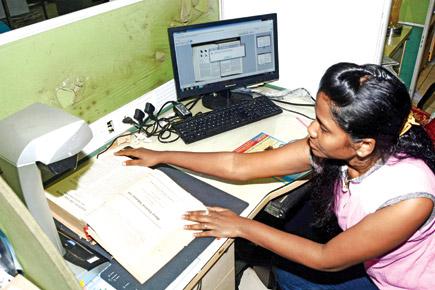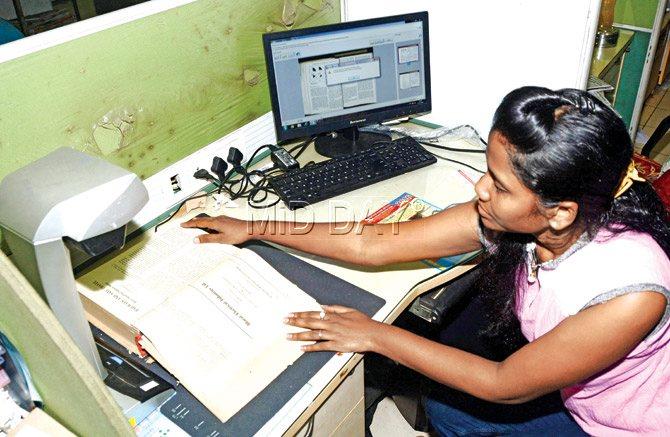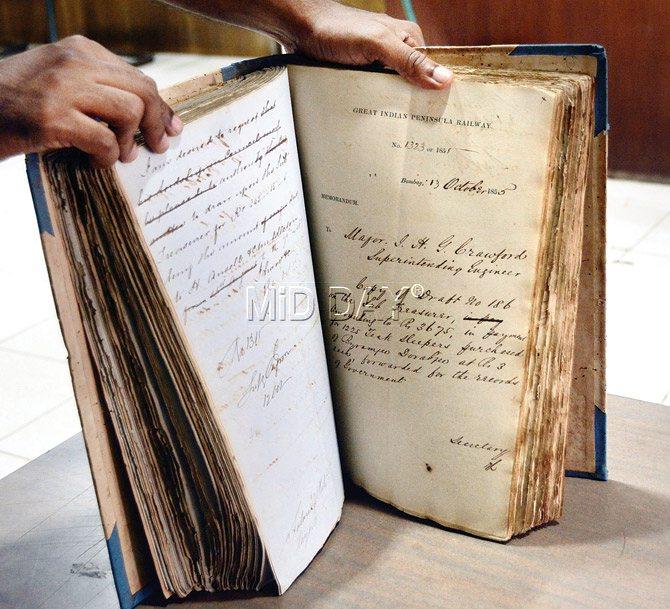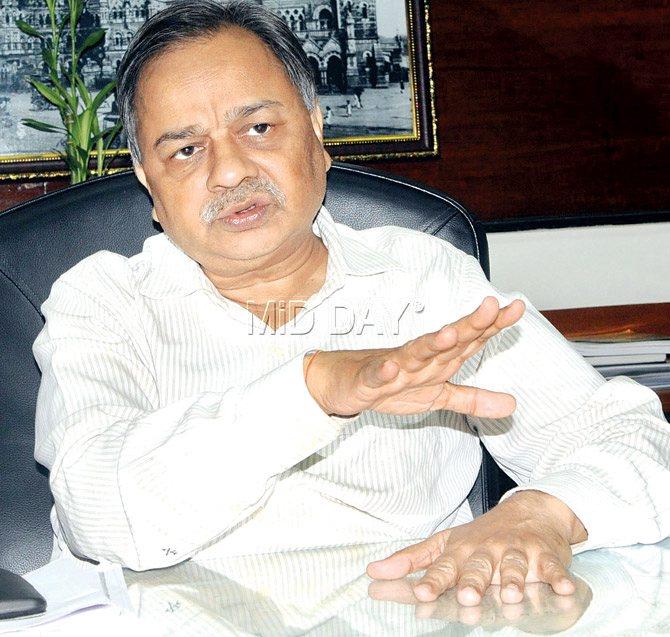A city that cannot imagine surviving without its railways once left English officers anxious about introducing its first passenger train. This, and more historical nuggets to go online as 2,000 records from CR archives get digitised


Digitisation is currently on at a ground floor room at the Chhatrapati Shivaji Terminus office building. Pic/Sayyed Sameer Abedi
Imagine getting the chance to go back in time when the first passenger train ran from Bori Bunder to Thane in 1853. This defining moment in India's history, as it turns out, was heralded by misconceptions and apprehensions. The English railway officers weren't sure if this new mode of transport would be received with enthusiasm by the 'natives', who had been used to roads and waterways.
There was "little or no hope that the line would be used to any large extent for passenger traffic". Fears of "a beggarly account of empty trains" preceded "…when we visited the terminus to witness the departure of the first public train, we knew not whether to anticipate crowded attendance or a deserted platform." More than a century later, the tenacious bond between the Mumbaikar and the local train is legendary.
In a digitisation programme launched last week by the Central Railway, these blasts from the past are in the form of books, documents and letters from the mid-1800s onwards. For instance, the above lines are from a retrospective hardbound booklet, published in 1900, titled The Great Indian Peninsula Railway, Under the Original Company's Administration.

A hardbound compilation of correspondences between railway officials. Several letters in this collection are written in fine calligraphic styles in archival ink. Pic/Sayyed Sameer Abedi
"We want to create a databank and also document every book and journal so that it becomes available for people interested in reading about the Indian Railways," said AK Srivastava, Additional General Manager, Central Railway (CR). This new digitisation effort will see a substantial chunk of documents being available to the public on the CR website in a month's time.
Bringing pages together
Many of these documents were spread across the various departments of the Central Railway, and were compiled into hardbound records. While it has not been ascertained who carried out the compilation, it is undeniable that a massive, yet delicate job lies ahead for the Central Railway. There are over 2,000 books, journals and records, including letters. There are letters exchanged between officials that describe the challenges faced by the railways, its employees, statistics and accounts.
The first part of the digitisation programme is of the magazines of the GIP Railways, and their subsequent preservation. Phase 2 will include the rest of the documents. Srivastava said there was no separate budget allocated for this programme, and funds would come from the existing budget as the costs incurred don't seem to be too high. An official said that R25,000 has been spent on the project so far.

AK Srivastava. Pic/Datta Kumbhar
With the help of the Kairee System, a Pune-based IT solutions company, the fragile pages — which have borne the brunt of weather, bookworms and ink seepage — are being scanned and saved onto hard drives. Work is being carried out from the ground floor of CST. A Kairee staffer said, "I scan around 300 pages a day. We started almost a week ago and have already scanned 10 books." Srivastava said, "We are aware that preservation is an important step, which we are looking into."
A journal in the making
The CR plans to bring out a periodical, with the help of resources from the Maharashtra State Archives, which will help researchers and enthusiasts know more about significant moments from the history of the railways.
"In a couple of months, we will publish a journal dedicated to the making of Bhor Ghat and Thal Ghat, which were important passageways for the Indian Railways to connect Mumbai with Southern and Eastern India. These were monumental and strategic engineering decisions, described as jobs tougher than the making of the Suez Canal," said Srivastava.
300
No. of pages Kairee staffers scan daily
Rs 25k
Amount spent on digitising the project so far
 Subscribe today by clicking the link and stay updated with the latest news!" Click here!
Subscribe today by clicking the link and stay updated with the latest news!" Click here!









